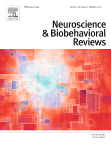The authors of a study on cancer incidence and survival in the Dutch migrant community have retracted it after realizing they’d made some errors that significantly affected the results.
 But in what seems like an appropriate reward for coming forward, the newly analyzed data, with additional information, will be part of a forthcoming paper in another journal by the same authors.
But in what seems like an appropriate reward for coming forward, the newly analyzed data, with additional information, will be part of a forthcoming paper in another journal by the same authors.
The original retrospective study came out in May 2011 in the European Journal of Cancer Prevention and found that risk and survival of breast and stomach cancers differed depending on the person’s mother country. The problem was that the study jumbled up many of the participants’ homelands during the analysis.
The authors issued the following retraction: Continue reading Jumbled analysis leads to retraction of cancer study — but also another paper







